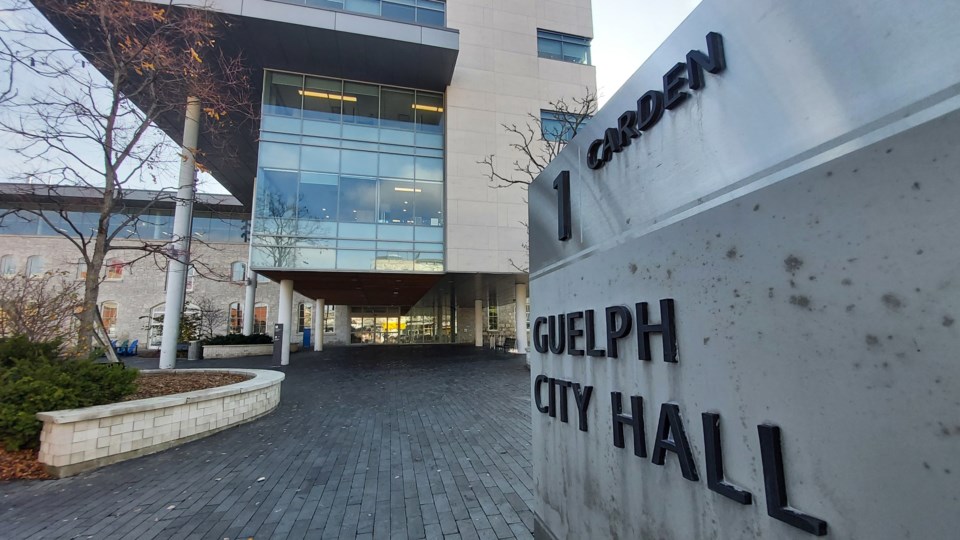With an eye on fostering the spirit of reconciliation, city council has given initial approval to a new Indigenous relations framework that includes the creation of a staff-led advisory circle to comment on city initiatives.
It also features increased visibility of Indigenous culture and strengthened communication with First Nations, among several other commitments.
“This is really the beginning of a reconciliation journey,” said Kimberly Krawczyk, the city’s manager of policy and intergovernmental relations. “This really is just a starting point.”
The framework was approved by council’s committee of the whole on Wednesday. In order for it to be put into action, formal council ratification is needed – something that will be considered on Sept. 24.
Ahead of the committee’s unanimous vote, council heard concerns about the process used to craft the framework in consultation with people who are “not Indigenous people at all.”
Calling for the framework to be scrapped, one delegate referred to their comments to council as an intervention.
“It is highly unlikely true reconciliation will unfold,” said Verna Miedema of the recently formed Guelph Indigenous Community Council, which she described as a coalition of grassroots organizers, protectors and local elders.
“Since January we have been engaged in a process to address issues of misrepresentation, Indigenous identity theft, false teachings, exclusion and manipulation,” she said, adding involvement in the framework process was “based on a policy of self-identification" and "there's no real intent to make sure that the voiced opinions were authentic Indigenous community members.”
A staff report to the committee states the engagement process involved the Mississaugas of the Credit First Nation, Six Nations of the Grand River, Grand River Métis Council, urban Indigenous people and organizations, as well as other partner organizations.
In her presentation, Miedema also alleged the locks on the sacred fire in Royal City Park were changed ahead of a planned July 5 meant to “address long-standing harms in the Indigenous community here in Guelph.”
She claimed the locks were changed by the intergovernmental affairs team at the city based on “misinformation” provided to it, which “casts a shadow over the whole framework and engagement process and demonstrates an inherent lack of trustworthiness.”
The event went ahead that day, but was delayed.
Miedema said city council was invited to attend, but no one showed.
Council asked no questions of the delegates and didn’t ask staff to comment on their allegations, which is something commonly done during council sessions.
GuelphToday reached out to city officials for comment on the allegations surrounding use of the sacred fire and received the following response:
“Through (Indigenous relations framework) engagement, we became aware of concerns around access to the scared fire site. As a result we identified a need to revisit policies related to access to the sacred fire site. City staff have a process underway right now to move to a more open booking system which will allow the site to be reserved by anyone in Guelph who self-identifies as Indigenous and wants to use the site for Indigenous ceremonial purposes. We expect that booking system to be in place by Monday, September 30, the National Day for Truth and Reconciliation,” wrote Jodie Sales, the city’s general manager of strategic initiatives and intergovernmental services, via email.
“The sacred fire is an important city asset for Indigenous community use. Over the past several months locks have been removed from the site and replaced without City of Guelph staff awareness. When this occurs, the locks are replaced to re-secure the site to ensure that it can remain available for use by all indigenous community members, following the city’s booking process.”
The framework isn’t without support in the community. In a letter to the committee, Paul Smith called it “a significant step toward on-the-ground action.”
“The framework is a good document that will lead the way to more concrete action, which is what we all want and are impatient for,” he wrote, noting “Guelph has not kept up with the pace of change in the country. Many municipalities have taken more substantive action. Guelph has lagged behind.”
Among the framework’s other commitments are to develop and implement education and training for city council, staff and the public about Indigenous world views and histories, including colonization, as well as regular communication with Mississaugas of the Credit First Nation and Six Nations of the Grand River.
The latter includes the signing of a memorandum of understanding to identify priorities and responsibilities.
It further calls for partnerships to be built with Indigenous organizations within the region to over Indigenous-led programs and supports within the city, along with a commitment for city officials to work with First Nations to manage natural resources and ecosystems.
